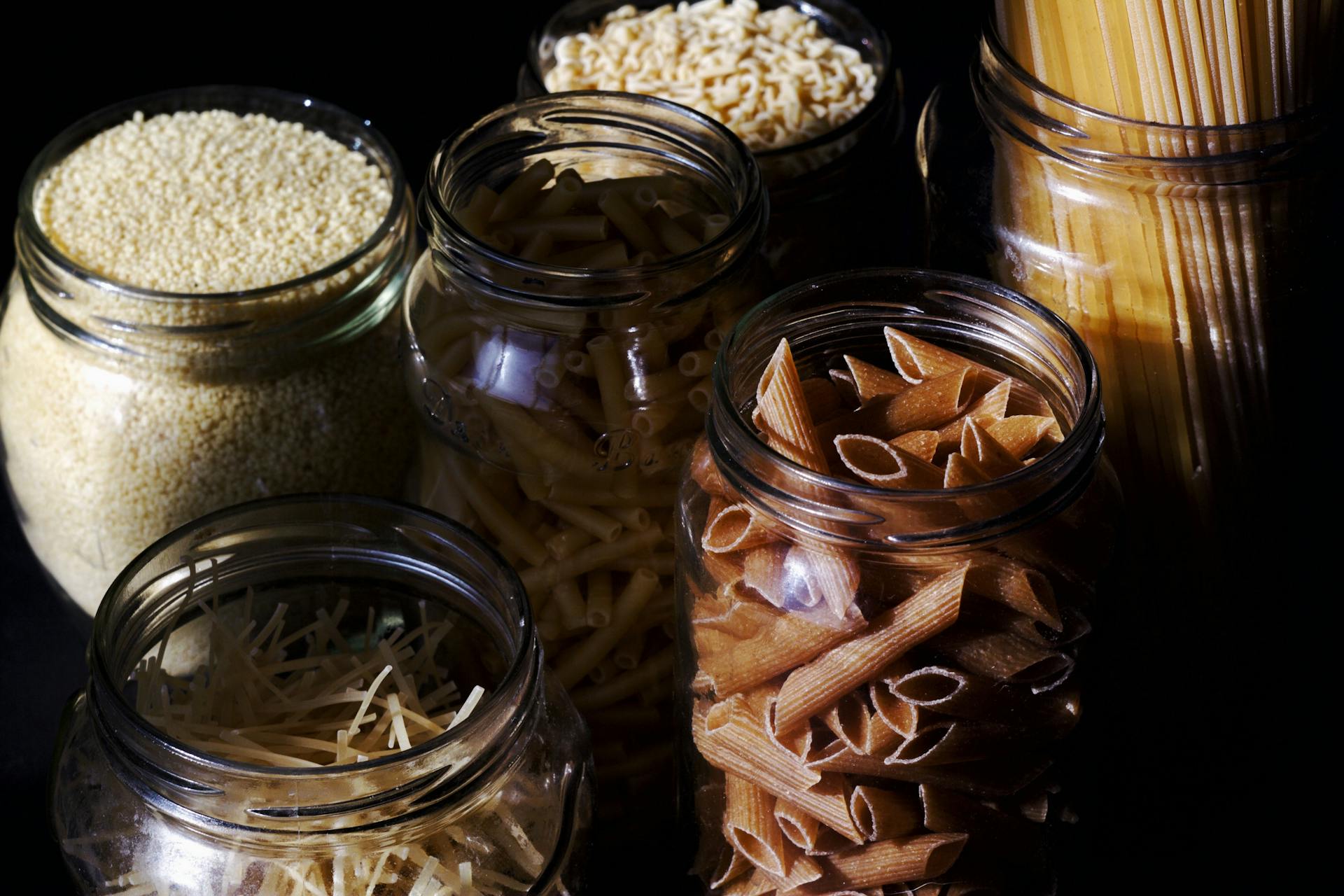
Diabetes is a severe medical condition that affects the way someone’s body utilizes food and energy, resulting in various serious medical issues. People with diabetes typically need to carefully monitor the amount of carbohydrates they consume in order to maintain healthy blood sugar levels. With this in mind, many may wonder if it's safe or possible for those living with diabetes to eat ramen noodles.
The good news is, yes in moderation! Ramen noodles typically contain high levels of carbohydrates, which are a major factor when considering what foods to eat for someone living with diabetes. Care must be taken to monitor the amount of noodles consumed and track the carbohydrates intake (one 3 oz (80g) serving of ramen contains about 40g of carbs). It's also important to include ramen as part of a balanced meal by adding other proteins and healthy fats which will help slow the absorption rate of carbohydrates. Adding vegetables like spinach or carrots can further add nutritional benefits while decreasing the carbohydrate count.
Another helpful tip when wanting to enjoy ramen noodles is to switch out the seasoning packet for something lower in sodium and opt for low sodium or reduced fat added ingredients like chicken or beef - both are excellent sources of lean protein. This addition will provide more beneficial nutrition without adding salt or unhealthy trans fats to your meal.
Ultimately, diabetics can safely enjoy ramen noodles in moderation as part of a balanced diet; they just need to keep an eye on their carbohydrate intake and make sure not to overindulge. When having ramen, carefully select the appropriate ingredients that suit your dietary needs so you can still enjoy this popular favorite without compromising your health.
A fresh viewpoint: Buy Low Sodium Ramen Noodles
Are ramen noodles suitable for a diabetic diet?
Ramen noodles can indeed be suitable for a diabetic diet, depending on the specific type of noodles you are consuming, how it is prepared, and any additional ingredients that are added to the noodles. However, as with all convenience foods, individuals eating it should take care to adhere to portion control and opt for healthier alternatives where they exist.
Due to their low cost and high availability, ramen noodles have become an incredibly popular food choice among college students living on a budget. However, these types of noodles are quite high in sodium and carbohydrates which might not be suitable for those patients with diabetes. Instead of relying on this food item as a staple in your diet, consider using it as an occasional treat by creating a healthier version and adding some nutrient-dense ingredients such as eggs, mushrooms or kale. Eating ramen noodles in moderation can help reduce the risk of blood sugar surges from refined carbohydrates and maintain healthy blood sugar levels over time.
It is important for diabetics to carefully monitor the nutritional content of whatever food they choose to eat. Ramen noodles alone might not fit into a diabetic’s diet plans due to all their high-carb content but creating healthier versions with a blend of nutritious ingredients can make them part of your regular food intake plan as long as it is done with caution and moderation.
For more insights, see: 7-11 Sell Ramen Noodles
Are there any health benefits to eating ramen noodles for a diabetic?
With the popularity of ramen noodles on the rise due to both their convenience and affordability, many people have been asking if there are any health benefits to eating them for a diabetic. The short answer to this question is yes.
Firstly, ramen noodles have low sugar content, a factor that’s essential for managing diabetes. Additionally, it's high in carbohydrates which means that it can help maintain blood sugar levels and also provide some needed energy when consumed in moderation. Furthermore, most varieties of instant ramen contain a small amount of dietary fiber which helps with digestion and cardiovascular health while keeping blood glucose at manageable levels.
Even though regular consumption of ramen noodles might not be desirable due to its sodium content since salt can affect blood pressure levels, adjustments can be made by using seasoning packets that contain natural spices and herbs like onion powder and garlic salt which will also reduce the quantity of sodium. Always check the ingredient list when selecting seasonings or adding components as some may be too high in sugar or fats even if they are labeled ‘low-fat’ or ‘low-sugar.'
By understanding what your body needs and being mindful about ingredients when preparing quick meals like ramen noodles, you can find tasty ways to make healthy dietary choices for yourself as a diabetic.
Are there particular ingredients in ramen noodles that could be dangerous for diabetics to consume?
For diabetics, nutrition is an important part of life that requires thoughtful consideration before eating certain foods. Ramen noodles are not necessarily seen as a health food, and added to that, there are certain ingredients in ramen noodles which may add possible danger to a diabetic diet. Materials such as wheat flour, soybean oil, monosodium glutamate (MSG), traces of sodium nitrite and other preservatives are some of the contained components of this popular snack.
When it comes to diabetes, monitoring one’s intake of carbohydrates is key to avoiding blood glucose spikes. Ramen noodles have a significant amount of carbohydrates because they are made with wheat flour and wheat noodles can contain nearly 50g of carbs per serving! This means that if you have diabetes and don’t watch your portions then eating too much ramen noodles could easily cause a blood sugar spike.
Added to their already high carb content they also contain MSG which is seen as something of a concern in the diabetic community. MSG has been linked to an inflammation response, which can cause elevated insulin resistance. Furthermore, many varieties of ramen also contain sodium nitrite or other additives and fats which could be dangerous for diabetics because it's known that too much salt contributes to hypertension or highblood pressure for those with diabetes.
In conclusion, ramen noodles can be dangerous for Diabetics to consume due to potential sugar highs from its high carb content, its potential contribution towards inflammation from MSG levels and its variety of negative additives and fats. Therefore, although it's okay for diabetics to enjoy the occasional bowl or two of ramen noodles in moderation (and count it towards their dietary intake) it's important know what's inside them before making them part of a regular meal plan!
Broaden your view: Diabetics Eat Tomato Sauce
Is there a way for a diabetic to enjoy the flavor of ramen noodles without compromising health?
When it comes to the delicious flavor of ramen noodles, most people with diabetes may be wondering if they can still enjoy this comfort food without compromising their health. The answer is yes! It is possible for diabetics to indulge in the umami taste of ramen noodles without negatively impacting their blood glucose levels.
The key to enjoying ramen noodles as a diabetic lies in making a few simple modifications to traditional recipes. One easy tip is to opt for low-sodium versions of the seasoning packets; this will help avoid the unnecessary excess salt intake. Additionally, be sure to select a fortified wheat-based variety of noodles, as they come packed with added vitamins and minerals that are beneficial for healthy glucose levels. To make the meal even healthier, add in extra vegetables like bok choy, bean sprouts, or peppers for an extra crunch and plenty of vitamins and minerals.
Finally, always be sure to check your individual nutritional needs and lifestyle requirements before indulging in any meal. Ramen noodles can be enjoyed by diabetics, but keeping track of portion size and overall sugar intake remains essential for maintaining healthy glucose levels. With just a few small tweaks, you can enjoy this savory dish without compromising your health!
Featured Images: pexels.com


